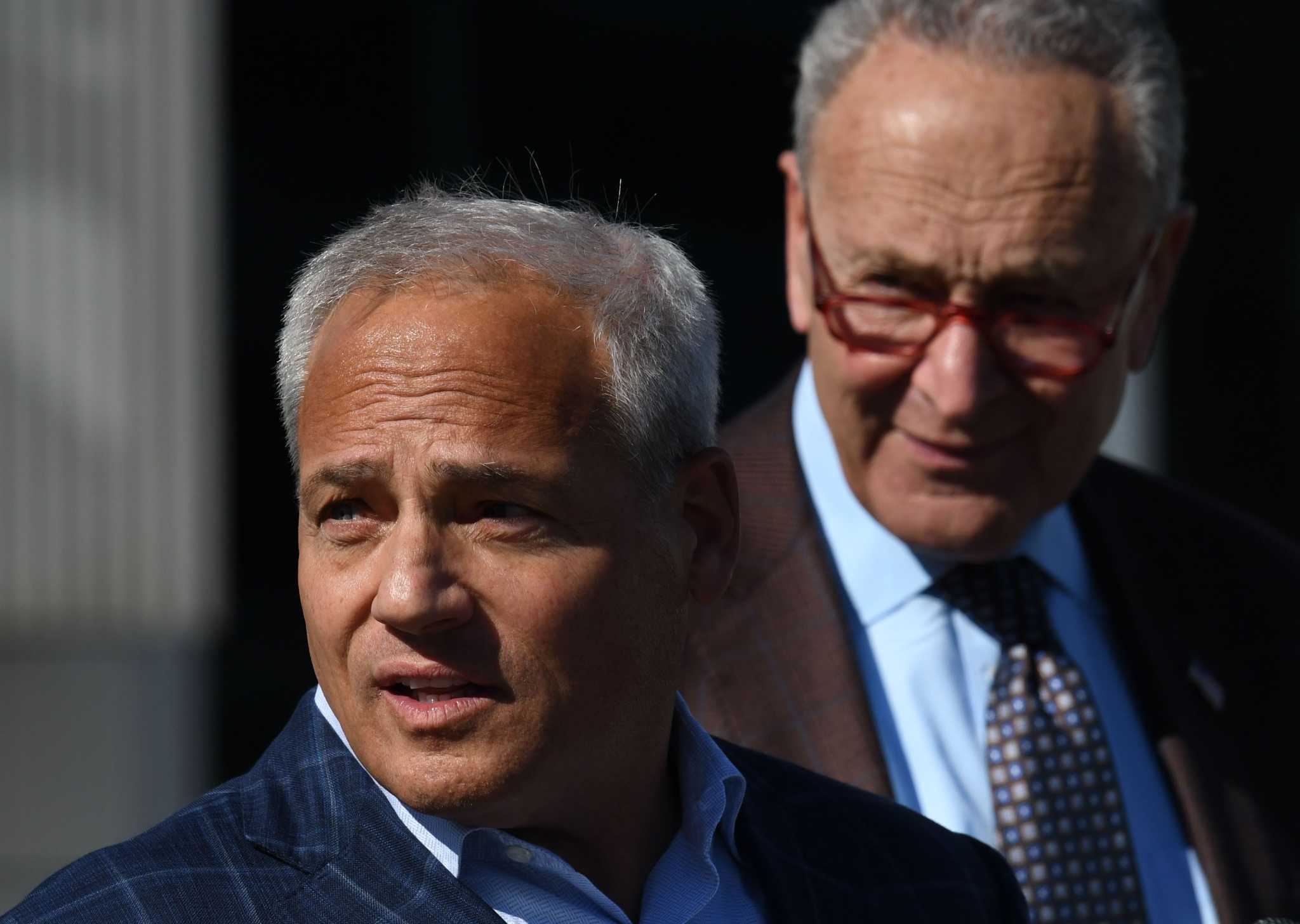Schumer asks Yellen to make sure chip company tax credits last


ALBANY – U.S. Senate Majority Leader Charles Schumer is pushing Treasury Secretary Janet Yellen to make sure that a substantial federal tax credit offered to computer chip companies that expand in the U.S. under the new CHIPS and Science Act can be used over long periods of time.
Chip manufacturers like GlobalFoundries, which has its headquarters and Fab 8 chip factory in Malta, typically ramp up production in phases in order not to overextend their capital, which is substantial in a factory that can cost anywhere from $5 billion to $15 billion, depending on the sophistication of the chips.
For instance, GlobalFoundries is considering building a second factory in Malta that will be known as Fab 8.2. The CHIPS and Science Act, which Schumer pushed through Congress last year, provides $52 billion in grants to companies like GlobalFoundries that expand their facilities in the U.S.
But the legislation also included a 25 percent investment tax credit on the cost of building the new factories and purchasing the new manufacturing equipment that is needed for those factories.
Such federal tax credits are typically structured to expire after a certain number of years not too long in the future, but Schumer wrote a letter to Yellen explaining to her that in order for the industry to take advantage of the tax credits, they need to be available over a long period of time.
For instance, GlobalFoundries built Fab 8 in stages over 10 years, investing more than $10 billion in the facility. And the company announced a plan to invest another $1 billion in new manufacturing equipment to increase production. Plans for a second factory would move forward later, after that expansion is complete, meaning it could be years before construction on the second factory begins.
Micron Technologies, which is planning a $100 billion memory chip factory outside of Syracuse, will also be building in phases over a 20-year period. Schumer wants the U.S. Treasury, which will craft the final rules on the chip tax credits, to keep those timelines in mind as it goes through the process.
“The ITC is what will help level the playing field with incentives offered by competitors overseas, so places like the Capital Region not China, Syracuse not Shanghai will be the home to the future of manufacturing and innovation,” Schumer said in a statement.
“Companies are eager to make investments and move forward on game-changing projects across the country, but they want the certainty that the incentives are accessible,” Schumer wrote Yellen in the letter, which he sent on Friday.
Schumer and the chip companies are worried that the investment tax credits will expire before the industry can use them since their “investment horizon is typically over a decade, not a year or two.
“As you know, some projects applying for the ITC and CHIPS funding will be on-shoring manufacturing through a phased approach,” Schumer wrote Yellen. “The ITC is designed not only to enable the initial phase of a domestic greenfield (at a new site) fab project but also to enable continued investment as the market expands and advances.”



